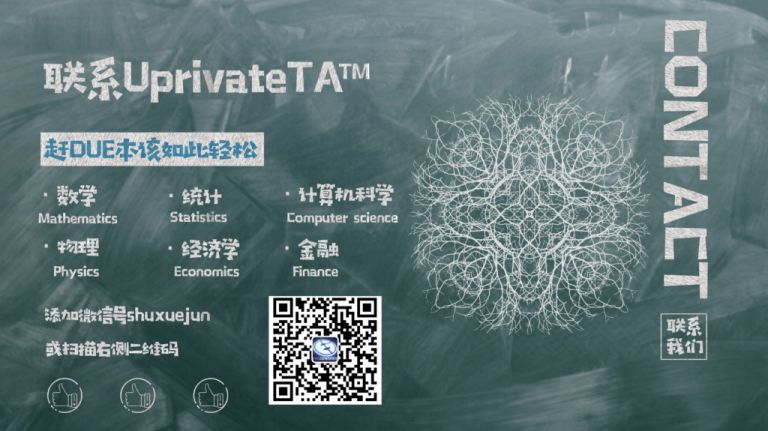如果你也在 怎样代写国际商贸International Business 这个学科遇到相关的难题,请随时右上角联系我们的24/7代写客服。国际商贸International Business是指具有国际性质的私人商业交易。当当事人的营业地点在不同的民族国家时,就存在国际因素;当这些交易涉及商品、服务、技术或资本在不同国家之间的流动时;或者当一个州的各方之间的交易对另一个州有直接影响时。
国际商贸International Business可以根据在国际市场的渗透程度进行分类,至少在一般情况下是这样。第一级渗透是简单的进出口交易,例如,涉及来自美国的卖方和来自德国的买方的货物销售。如果这是成功的,公司发现对其产品有足够的需求,卖方可以在德国建立一个代理商或其产品的分销商,他们将试图增加卖方对目标市场的渗透。在这一步之后,美国卖方可能决定从事合同制造,这是第三个渗透层次。这可能涉及授权德国实体在德国生产其产品,并在德国和其他欧洲国家销售和分销。在这种许可交易中,一个重要的问题是技术转让,因为卖方需要允许德国制造商在一定程度上获得卖方的知识产权。或者,在许可协议期满后,美国卖方可以决定在德国建立自己的业务实体,由其作为唯一或部分所有者。美国卖方可以选择通过建立德国子公司从零开始建立自己的业务,或者收购一家现有的德国商业实体。在任何一种情况下,这都是所谓的“外国直接投资”。
statistics-lab™ 为您的留学生涯保驾护航 在代写国际商贸International Business方面已经树立了自己的口碑, 保证靠谱, 高质且原创的统计Statistics代写服务。我们的专家在代写国际商贸International Business代写方面经验极为丰富,各种代写国际商贸International Business相关的作业也就用不着说。

会计代写|国际商贸代写International Business代考|The Revised Case for Free Trade
The strategic trade policy arguments of the new trade theorists suggest an economic justification for government intervention in international trade. This justification challenges the rationale for unrestricted free trade found in the work of classic trade theorists such as Adam Smith and David Ricardo. In response to this challenge to economic orthodoxy, a number of economists-including some of those responsible for the development of the new trade theory, such as Paul Krugman-point out that although strategic trade policy looks appealing in theory, in practice it may be unworkable. This response to the strategic trade policy argument constitutes the revised case for free trade. ${ }^{18}$
RETALIATION AND TRADE WAR
Krugman argues that a strategic trade policy aimed at establishing domestic firms in a dominant position in a global industry is a beggar-thy-neighbor policy that boosts national income at the expense of other countries. A country that attempts to use such policies will probably provoke retaliation. In many cases, the resulting trade war between two or more interventionist governments will leave all countries involved worse off than if a hands-off approach had been adopted in the first place. If the U.S. government were to respond to the Airbus subsidy by increasing its own subsidies to Boeing, for example, the result might be that the subsidies would cancel each other out. In the process, both European and U.S. taxpayers would end up supporting an expensive and pointless trade war, and both Europe and the United States would be worse off.
Krugman may be right about the danger of a strategic trade policy leading to a trade war. The problem, however, is how to respond when one’s competitors are already being supported by government subsidies; that is, how should Boeing and the United States respond to the subsidization of Airbus? According to Krugman, the answer is probably not to engage in retaliatory action but to help establish rules of the game that minimize the use of trade-distorting subsidies. This is what the World Trade Organization seeks to do. It should also be noted that antidumping policies can be used to target competitors supported by subsidies who are selling goods at prices that are below their costs of production.
DOMESTIC POLICIES
Governments do not always act in the national interest when they intervene in the economy; politically important interest groups often influence them. The European Union’s support for the Common Agricultural Policy (CAP), which arose because of the political power of French and German farmers, is an example. The CAP benefits inefficient farmers and the politicians who rely on the farm vote but not consumers in the EU, who end up paying more for their foodstuffs. Thus, a further reason for not embracing strategic trade policy, according to Krugman, is that such a policy is almost certain to be captured by special-interest groups within the economy, which will distort it to their own ends. Krugman concludes that in the United States,
To ask the Commerce Department to ignore special-interest politics while formulating detailed policy for many industries is not realistic; to establish a blanket policy of free trade, with exceptions granted only under extreme pressure, may not be the optimal policy according to the theory but may be the best policy that the country is likely to get.
会计代写|国际商贸代写International Business代考|Development of the World Trading System
Strong economic arguments support unrestricted free trade. While many governments have recognized the value of these arguments, they have been unwilling to unilaterally lower their trade barriers for fear that other nations might not follow suit. Consider the problem that two neighboring countries, say, Brazil and Argentina, face when deciding whether to lower trade barriers between them. In principle, the government of Brazil might favor lowering trade barriers, but it might be unwilling to do so for fear that Argentina will not do the same. Instead, the government might fear that the Argentineans will take advantage of Brazil’s low barriers to enter the Brazilian market while continuing to shut Brazilian products out of their market through high trade barriers. The Argentinean government might believe that it faces the same dilemma. The essence of the problem is a lack of trust. Both governments recognize that their respective nations will benefit from lower trade barriers between them, but neither government is willing to lower barriers for fear that the other might not follow. ${ }^{20}$
Such a deadlock can be resolved if both countries negotiate a set of rules to govern cross-border trade and lower trade barriers. But who is to monitor the governments to make sure they are playing by the trade rules? And who is to impose sanctions on a government that cheats? Both governments could set up an independent body to act as a referee. This referee could monitor trade between the countries, make sure that no side cheats, and impose sanctions on a country if it does cheat in the trade game.
While it might sound unlikely that any government would compromise its national sovereignty by submitting to such an arrangement, since World War II an international trading framework has evolved that has exactly these features. For its first 50 years, this framework was known as the General Agreement on Tariffs and Trade (GATT). Since 1995, it has been known as the World Trade Organization (WTO). Here, we look at the evolution and workings of the GATT and WTO.
FROM SMITH TO THE GREAT DEPRESSION
As noted in Chapter 5, the theoretical case for free trade dates to the late eighteenth century and the work of Adam Smith and David Ricardo. Free trade as a government policy was first officially embraced by Great Britain in 1846, when the British Parliament repealed the Corn Laws. The Corn Laws placed a high tariff on imports of foreign corn. The objectives of the Corn Laws tariff were to raise government revenues and to protect British corn producers. There had been annual motions in Parliament in favor of free trade since the 1820 s, when David Ricardo was a member. However, agricultural protection was withdrawn only as a result of a protracted debate when the effects of a harvest failure in Great Britain were compounded by the imminent threat of famine in Ireland. Faced with considerable hardship and suffering among the populace, Parliament narrowly reversed its longheld position.
During the next 80 years or so, Great Britain, as one of the world’s dominant trading powers, pushed the case for trade liberalization, but the British government was a voice in the wilderness. Its major trading partners did not reciprocate the British policy of unilateral free trade. The only reason Britain kept this policy for so long was that as the world’s largest exporting nation, it had far more to lose from a trade war than did any other country.
By the 1930 s, the British attempt to stimulate free trade was buried under the economic rubble of the Great Depression. Economic problems were compounded in 1930, when the U.S. Congress passed the Smoot-Hawley tariff. Aimed at avoiding rising unemployment by protecting domestic industries and diverting consumer demand away from foreign products, the Smoot-Hawley Act erected an enormous wall of tariff barriers. Almost every industry was rewarded with its “made-to-order” tariff. The Smoot-Hawley Act had a damaging effect on employment abroad. Other countries reacted by raising their own tariff barriers. U.S. exports tumbled in response, and the world slid further into the Great Depression.

国际商贸代考
会计代写|国际商贸代写International Business代考|The Revised Case for Free Trade
新贸易理论家的战略贸易政策论点为政府干预国际贸易提供了经济理由。这一理由挑战了经典贸易理论家(如亚当•斯密和大卫•李嘉图)著作中关于不受限制的自由贸易的基本原理。为了回应这种对经济正统的挑战,许多经济学家——包括一些负责发展新贸易理论的人,如保罗·克鲁格曼——指出,尽管战略贸易政策在理论上看起来很有吸引力,但在实践中可能行不通。这种对战略贸易政策论点的回应构成了对自由贸易的修正。$ {} ^ {18} $
报复和贸易战
克鲁格曼认为,旨在使本国企业在全球产业中占据主导地位的战略性贸易政策是以邻为壑的政策,以牺牲其他国家为代价来提高国民收入。试图使用此类政策的国家可能会招致报复。在许多情况下,由此导致的两个或多个干预主义政府之间的贸易战,将使所有相关国家的情况比一开始就采取不干涉的做法更糟。例如,如果美国政府通过增加对波音的补贴来回应空客的补贴,结果可能是补贴会相互抵消。在这个过程中,欧洲和美国的纳税人最终都会支持一场代价高昂且毫无意义的贸易战,欧洲和美国的情况都会更糟。
克鲁格曼关于战略性贸易政策导致贸易战的危险可能是正确的。然而,问题在于,当竞争对手已经得到政府补贴的支持时,该如何应对?也就是说,波音和美国应该如何应对空客的补贴?根据克鲁格曼的说法,答案可能不是采取报复性行动,而是帮助建立游戏规则,最大限度地减少扭曲贸易的补贴的使用。这正是世界贸易组织试图做的。还应当指出的是,反倾销政策可以用来针对那些得到补贴、以低于生产成本的价格销售商品的竞争对手。
国内政策
政府在干预经济时并不总是以国家利益为出发点;政治上重要的利益集团经常影响他们。欧盟对共同农业政策(CAP)的支持就是一个例子,该政策源于法国和德国农民的政治力量。共同农业政策有利于效率低下的农民和依赖农业投票的政客,而不是欧盟的消费者,后者最终要为他们的食品支付更多的钱。因此,克鲁格曼认为,不接受战略性贸易政策的另一个原因是,这种政策几乎肯定会被经济中的特殊利益集团所利用,从而扭曲它以达到自己的目的。克鲁格曼总结道,在美国,
要求商务部在为许多行业制定详细政策时忽略特殊利益政治是不现实的;根据该理论,制定一项全面的自由贸易政策,只有在极端压力下才允许例外,这可能不是最优政策,但可能是该国可能得到的最佳政策。
会计代写|国际商贸代写International Business代考|Development of the World Trading System
强有力的经济论据支持不受限制的自由贸易。虽然许多政府已经认识到这些论点的价值,但它们一直不愿单方面降低贸易壁垒,因为担心其他国家可能不会效仿。考虑两个邻国,比如巴西和阿根廷,在决定是否降低它们之间的贸易壁垒时面临的问题。原则上,巴西政府可能会支持降低贸易壁垒,但它可能不愿意这样做,因为它担心阿根廷不会这么做。相反,政府可能担心阿根廷人会利用巴西的低壁垒进入巴西市场,同时继续通过高贸易壁垒将巴西产品拒之门外。阿根廷政府可能认为自己也面临着同样的困境。问题的实质是缺乏信任。两国政府都认识到,降低两国之间的贸易壁垒将使各自受益,但两国政府都不愿意降低壁垒,因为担心对方可能不会效仿。$ {} ^ {20} $
如果两国协商出一套管理跨境贸易和降低贸易壁垒的规则,这种僵局就可以得到解决。但谁来监督各国政府,确保它们遵守贸易规则呢?谁来制裁一个作弊的政府呢?两国政府都可以设立一个独立的机构作为裁判。这个裁判可以监督国家之间的贸易,确保没有一方作弊,如果一个国家在贸易游戏中作弊,就会对其实施制裁。
虽然听起来不太可能有任何政府会因为服从这样的安排而牺牲自己的国家主权,但自第二次世界大战以来,一个国际贸易框架的发展正是具有这些特征的。在最初的50年里,这个框架被称为关税及贸易总协定(GATT)。自1995年以来,它一直被称为世界贸易组织(WTO)。在这里,我们看看关贸总协定和世界贸易组织的演变和运作。
从史密斯到大萧条
如第五章所述,自由贸易的理论案例可以追溯到18世纪晚期和亚当·斯密和大卫·李嘉图的工作。1846年,当英国议会废除《谷物法》时,英国首次正式接受了自由贸易作为一项政府政策。《谷物法》对进口外国玉米征收高额关税。《玉米法》关税的目的是增加政府收入和保护英国玉米生产商。自19世纪20年代以来,英国议会每年都有支持自由贸易的动议,当时戴维·李嘉图(David Ricardo)是议员。然而,农业保护措施只是在英国歉收的影响与爱尔兰迫在眉睫的饥荒威胁相结合的情况下,经过旷日持久的辩论才被取消的。面对民众的艰难困苦,议会勉强改变了长期以来的立场。
在接下来的80年左右的时间里,英国作为世界上占主导地位的贸易大国之一,推动了贸易自由化的进程,但英国政府只是荒野中的一个声音。它的主要贸易伙伴没有回应英国单方面的自由贸易政策。英国这么长时间保持这一政策的唯一原因是,作为世界上最大的出口国,它在贸易战中损失的东西比其他任何国家都大得多。
到20世纪30年代,英国刺激自由贸易的尝试被大萧条(Great Depression)的经济废墟所掩埋。1930年,美国国会通过了《斯姆特-霍利关税法》(Smoot-Hawley tariff),加剧了经济问题。斯姆特-霍利法案旨在通过保护国内产业和转移消费者对外国产品的需求来避免失业率上升,它竖起了一道巨大的关税壁垒墙。几乎每一个行业都得到了“定制”关税的奖励。《斯姆特-霍利法案》对海外就业产生了破坏性影响。其他国家的反应是提高自己的关税壁垒。作为回应,美国出口大幅下滑,世界进一步陷入大萧条。
统计代写请认准statistics-lab™. statistics-lab™为您的留学生涯保驾护航。
金融工程代写
金融工程是使用数学技术来解决金融问题。金融工程使用计算机科学、统计学、经济学和应用数学领域的工具和知识来解决当前的金融问题,以及设计新的和创新的金融产品。
非参数统计代写
非参数统计指的是一种统计方法,其中不假设数据来自于由少数参数决定的规定模型;这种模型的例子包括正态分布模型和线性回归模型。
广义线性模型代考
广义线性模型(GLM)归属统计学领域,是一种应用灵活的线性回归模型。该模型允许因变量的偏差分布有除了正态分布之外的其它分布。
术语 广义线性模型(GLM)通常是指给定连续和/或分类预测因素的连续响应变量的常规线性回归模型。它包括多元线性回归,以及方差分析和方差分析(仅含固定效应)。
有限元方法代写
有限元方法(FEM)是一种流行的方法,用于数值解决工程和数学建模中出现的微分方程。典型的问题领域包括结构分析、传热、流体流动、质量运输和电磁势等传统领域。
有限元是一种通用的数值方法,用于解决两个或三个空间变量的偏微分方程(即一些边界值问题)。为了解决一个问题,有限元将一个大系统细分为更小、更简单的部分,称为有限元。这是通过在空间维度上的特定空间离散化来实现的,它是通过构建对象的网格来实现的:用于求解的数值域,它有有限数量的点。边界值问题的有限元方法表述最终导致一个代数方程组。该方法在域上对未知函数进行逼近。[1] 然后将模拟这些有限元的简单方程组合成一个更大的方程系统,以模拟整个问题。然后,有限元通过变化微积分使相关的误差函数最小化来逼近一个解决方案。
tatistics-lab作为专业的留学生服务机构,多年来已为美国、英国、加拿大、澳洲等留学热门地的学生提供专业的学术服务,包括但不限于Essay代写,Assignment代写,Dissertation代写,Report代写,小组作业代写,Proposal代写,Paper代写,Presentation代写,计算机作业代写,论文修改和润色,网课代做,exam代考等等。写作范围涵盖高中,本科,研究生等海外留学全阶段,辐射金融,经济学,会计学,审计学,管理学等全球99%专业科目。写作团队既有专业英语母语作者,也有海外名校硕博留学生,每位写作老师都拥有过硬的语言能力,专业的学科背景和学术写作经验。我们承诺100%原创,100%专业,100%准时,100%满意。
随机分析代写
随机微积分是数学的一个分支,对随机过程进行操作。它允许为随机过程的积分定义一个关于随机过程的一致的积分理论。这个领域是由日本数学家伊藤清在第二次世界大战期间创建并开始的。
时间序列分析代写
随机过程,是依赖于参数的一组随机变量的全体,参数通常是时间。 随机变量是随机现象的数量表现,其时间序列是一组按照时间发生先后顺序进行排列的数据点序列。通常一组时间序列的时间间隔为一恒定值(如1秒,5分钟,12小时,7天,1年),因此时间序列可以作为离散时间数据进行分析处理。研究时间序列数据的意义在于现实中,往往需要研究某个事物其随时间发展变化的规律。这就需要通过研究该事物过去发展的历史记录,以得到其自身发展的规律。
回归分析代写
多元回归分析渐进(Multiple Regression Analysis Asymptotics)属于计量经济学领域,主要是一种数学上的统计分析方法,可以分析复杂情况下各影响因素的数学关系,在自然科学、社会和经济学等多个领域内应用广泛。
MATLAB代写
MATLAB 是一种用于技术计算的高性能语言。它将计算、可视化和编程集成在一个易于使用的环境中,其中问题和解决方案以熟悉的数学符号表示。典型用途包括:数学和计算算法开发建模、仿真和原型制作数据分析、探索和可视化科学和工程图形应用程序开发,包括图形用户界面构建MATLAB 是一个交互式系统,其基本数据元素是一个不需要维度的数组。这使您可以解决许多技术计算问题,尤其是那些具有矩阵和向量公式的问题,而只需用 C 或 Fortran 等标量非交互式语言编写程序所需的时间的一小部分。MATLAB 名称代表矩阵实验室。MATLAB 最初的编写目的是提供对由 LINPACK 和 EISPACK 项目开发的矩阵软件的轻松访问,这两个项目共同代表了矩阵计算软件的最新技术。MATLAB 经过多年的发展,得到了许多用户的投入。在大学环境中,它是数学、工程和科学入门和高级课程的标准教学工具。在工业领域,MATLAB 是高效研究、开发和分析的首选工具。MATLAB 具有一系列称为工具箱的特定于应用程序的解决方案。对于大多数 MATLAB 用户来说非常重要,工具箱允许您学习和应用专业技术。工具箱是 MATLAB 函数(M 文件)的综合集合,可扩展 MATLAB 环境以解决特定类别的问题。可用工具箱的领域包括信号处理、控制系统、神经网络、模糊逻辑、小波、仿真等。

